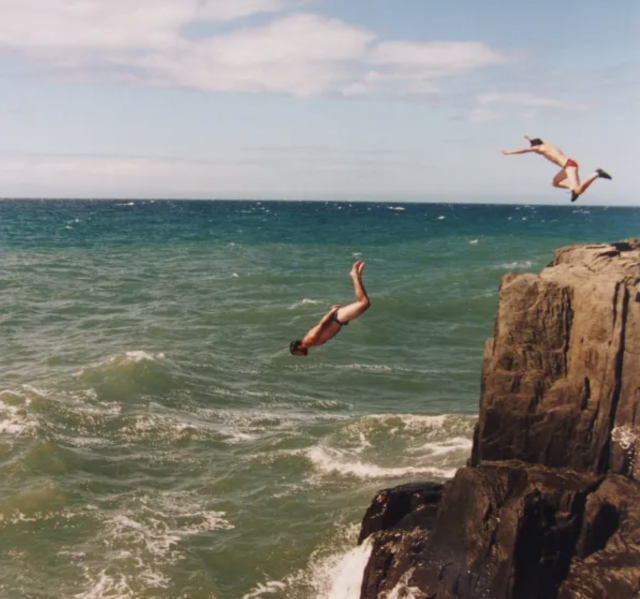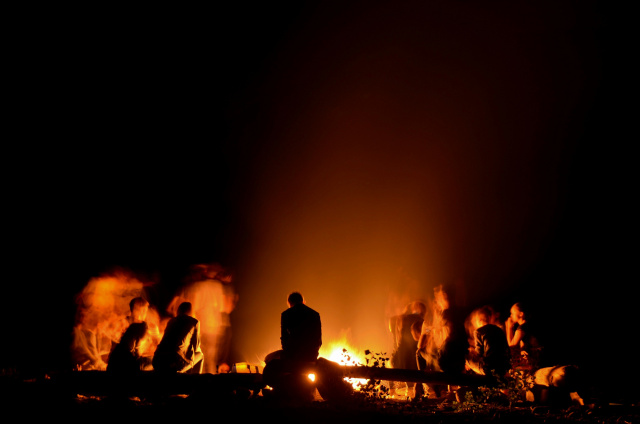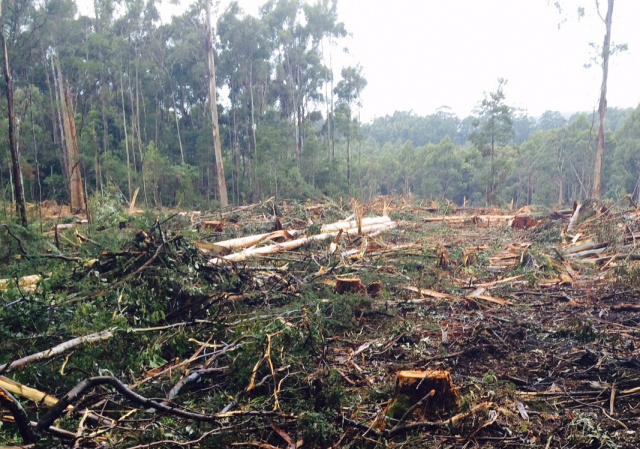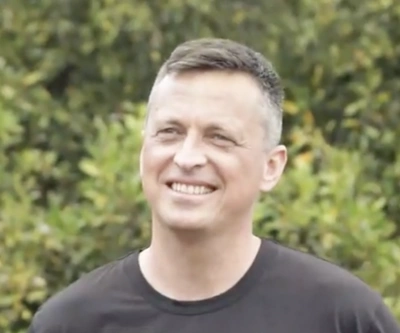A kid running amok to action for nature
Playing with friends and swimming with my family and I just felt that that connection was where we had the most fun, the most pleasure and wanted to hang out as often as I could.

And back in 1988, a large pulp mill was proposed, across beautiful farmland, threatening the coast that I'd grown up on. My parents stepped up as just local residents who'd recently moved to the area, to do what they could to try and stop this big industrial development, from decimating the area that we grew up in.
And it was highly conflictual on one level. Some people were opposed to the project, some supported it, and so that those memories stick with you, seeing that sort of conflict within the community.
But it was also a moment of a great coming together actually. As a kid I remember the leaders running the campaign would have spit roasts so they'd put on big fire, roast some meat and get everyone together over the evening to presumably do their planning. I was only very young so I don't know what they were up to but the kids were running amok, having a wonderful time and so actually the campaign for me was also a great memory of just bringing community together for the first time in an area we'd moved to and felt a little isolated. Actually the campaign was a great way to connect to meet wonderful people or kids in my case.

The campaign for me was also a great memory of just bringing community together for the first time in an area we'd moved to and felt a little isolated
So this wasn't by large logging corporations. This was people going in cutting down trees illegally to sell themselves. So my best friend and I, we took our bikes and went into the local council and raised the issue with them. Then we followed up in subsequent days to make sure that was actually investigated and something was done to get the illegal logging out of that area.
So for me, the next sort of phase, I think, was just being connected to the outdoors in that area and actually seeing that it was under threat. Growing up, I thought that I would work in tourism in the local area and that would be great. But then the unfortunate reality was actually a lot of the areas that I loved were under threat, and so that led me to wanting to do more in the activism and campaigning space.

The unfortunate reality was actually a lot of the areas that I loved were under threat, and so that led me to wanting to do more

Paul Oosting
Playing with friends and swimming with my family and I just felt that that connection was where we had the most fun, the most pleasure and wanted to hang out as often as I could.

And back in 1988, a large pulp mill was proposed, across beautiful farmland, threatening the coast that I'd grown up on. My parents stepped up as just local residents who'd recently moved to the area, to do what they could to try and stop this big industrial development, from decimating the area that we grew up in.
And it was highly conflictual on one level. Some people were opposed to the project, some supported it, and so that those memories stick with you, seeing that sort of conflict within the community.
But it was also a moment of a great coming together actually. As a kid I remember the leaders running the campaign would have spit roasts so they'd put on big fire, roast some meat and get everyone together over the evening to presumably do their planning. I was only very young so I don't know what they were up to but the kids were running amok, having a wonderful time and so actually the campaign for me was also a great memory of just bringing community together for the first time in an area we'd moved to and felt a little isolated. Actually the campaign was a great way to connect to meet wonderful people or kids in my case.

The campaign for me was also a great memory of just bringing community together for the first time in an area we'd moved to and felt a little isolated
So this wasn't by large logging corporations. This was people going in cutting down trees illegally to sell themselves. So my best friend and I, we took our bikes and went into the local council and raised the issue with them. Then we followed up in subsequent days to make sure that was actually investigated and something was done to get the illegal logging out of that area.
So for me, the next sort of phase, I think, was just being connected to the outdoors in that area and actually seeing that it was under threat. Growing up, I thought that I would work in tourism in the local area and that would be great. But then the unfortunate reality was actually a lot of the areas that I loved were under threat, and so that led me to wanting to do more in the activism and campaigning space.

The unfortunate reality was actually a lot of the areas that I loved were under threat, and so that led me to wanting to do more
You might like...

Intro to Campaign Strategy: Tools to Save Nature

Mastering Campaign Strategy: Your Power to Protect Our Planet

Children in Nature

Nature as music
Newsletter
Sign up to keep in touch with articles, updates, events or news from Kuno, your platform for nature
